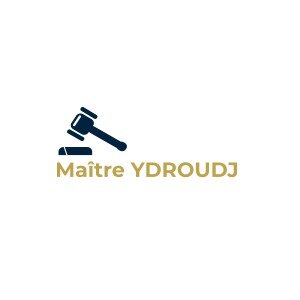Best Inheritance Law Lawyers in Algeria
Share your needs with us, get contacted by law firms.
Free. Takes 2 min.
Or refine your search by selecting a city:
List of the best lawyers in Algeria
1. About Inheritance Law in Algeria
Inheritance law in Algeria governs how a deceased person’s assets are distributed among heirs. In practice, the framework blends civil law concepts with Islamic inheritance principles for Muslim individuals. The process often involves notarial acts, probate procedures, and the preparation of a formal share calculation under the Family Code and Civil Code.
Key actors in this area include avocats (lawyers), notaires (notaries), and judges. The notary commonly handles the authentication of wills and the formal sharing of estates, while an avocat can provide litigation support if disputes arise. Understanding the basic rules helps families prepare for planning or resolution of disputes in a timely manner.
In Algeria, inheritance matters are primarily governed by the Civil Code and the Family Code, with rules reflected in the Official Journal texts.
JORADP - Official Journal of the Algerian Republic • Ministry of Justice
For anyone facing an inheritance issue, engaging qualified legal counsel early can clarify eligibility, shares, and timelines. This guide provides a practical overview to help residents assess when to seek help from an avocate or notaire.
2. Why You May Need a Lawyer
-
Disputes over shares among multiple heirs in Algiers or Oran. A decedent leaves conflicting versions of the will or ambiguous shares. An avocate can interpret the Family Code and Civil Code to ensure the rightful fractions are allocated to legitimate heirs and spouses under local practice.
-
Validating or challenging a will with cross-border assets. A will drafted abroad or in another jurisdiction must be recognized locally. A lawyer helps determine admissibility, validity, and whether the will complies with Algerian formalities.
-
Intestate succession when there is no will. If the deceased left assets in multiple provinces, a lawyer coordinates with notaries to initiate the succession process and identify legal heirs.
-
Real estate transfers requiring a succession deed. Property located in Algeria often needs an authentic act from a notary and a formal certificat de succession to register with the land registry.
-
Disputes with a notaire or tax authorities. If heirs disagree with a recognised inventory, or if there are concerns about inheritance taxes, a lawyer can negotiate and, if needed, litigate.
-
Protection for vulnerable heirs or dependent relatives. When minors or dependents are involved, counsel helps secure appropriate guardianship arrangements and ensure lawful allocations.
3. Local Laws Overview
The Algerian inheritance regime rests on two main legal pillars: the Civil Code and the Family Code. These codes set out how assets are divided among heirs, including the rights of spouses, children, and parents, and the procedures for transferring property after death.
Code Civil Algérien (Algerian Civil Code) regulates general rules of property, contracts, and succession. It provides the overarching framework used in probate and asset distribution after death. The Civil Code is the legal backbone for how estates are settled in courts and notarial settings.
Code de la Famille (Family Code) and related inheritance provisions governs family relationships, marriage, and the distribution of estates among close relatives. It establishes the concept of forced heirs and the obligatory shares allocated to certain family members, shaping how a deceased’s estate can be divided.
Practical notes: - Notaries routinely prepare and certify inheritance inventories, share calculations, and deeds of partition. - Courts may review contested shares or invalidity claims if heirs believe the distribution does not comply with the statutory framework. - Official texts are published in the Official Journal; consult the texts for precise article numbers and amendments.
Official texts and amendments relevant to inheritance are published in the Algerian Official Journal and interpreted by the Ministry of Justice and competent courts.
JORADP - Official Journal • Ministry of Justice
For exact articles and current practice, consult the Official Journal texts and seek guidance from a licensed avocate or notaire familiar with Algerian inheritance procedures.
4. Frequently Asked Questions
What is the basic framework for inheritance in Algeria?
Inheritance follows the Civil Code and Family Code, with forced shares for certain heirs. Muslim heirs typically follow Islamic inheritance rules, while non-Muslim individuals may be subject to civil arrangements. Laws are applied by notaries and the courts.
How do I start a succession case in Algeria?
Begin by gathering the death certificate, identity documents of heirs, property deeds, and any will. Contact a local avocate or notaire to file the inventory and initiate the succession process.
When should I consult a lawyer in an inheritance matter?
Consult when there is a potential dispute, a complex family structure, or assets in different provinces. Early counsel helps prevent delays and reduces conflict among heirs.
Where can I find the official text of inheritance laws?
Refer to the Official Journal of the Algerian Republic (JORADP) for the authoritative texts. The Ministry of Justice provides guidance on how to apply these laws in practice.
Why is a notary important in Algerian succession?
The notary authenticates wills, inventories, partitions, and property transfers. They also file documents with the land registry to finalize real estate inheritance.
Can a will limit your forced shares in Algeria?
A will may be limited by forced shares set by law. Only a portion of the estate can be bequeathed freely; the rest must pass to designated heirs under the statutory framework.
Do I need to prove my relationship to the deceased to inherit?
Yes. Heir status often depends on familial relationships. You will typically need birth certificates, marriage certificates, and guardianship documents if minors are involved.
Is there a timeline for completing an Algerian probate?
Probate timelines vary by case complexity and locality. A straightforward intestate case with simple assets may conclude in several months, while complex estates can take longer than a year.
What costs should I expect in an inheritance case?
Costs include notary fees, court fees, and legal counsel charges. Notary costs depend on the value and number of assets involved, while legal fees are subject to agreement with your avocate.
Should I settle out of court or pursue litigation?
Out of court settlements are often faster and less costly. Litigation is an option when there is clear misappropriation or disputed rights that cannot be resolved informally.
Do I need a local avocate or can I hire one from another city?
Local familiarity helps, especially with provincial registries and notaries. However, you can hire a lawyer from another city if they have relevant experience in inheritance matters.
Is there special procedure for real estate inheritance?
Yes. Real estate transfers require formal partition deeds and registration with the land registry, often via a notary. This ensures the title is properly updated in public records.
5. Additional Resources
-
Ministère de la Justice (Ministry of Justice, Algeria) - Provides guidance on legal procedures, access to forms, and procedural rules for inheritance cases.
-
Journal Officiel de la République Algérienne Démocratique et Populaire (Official Journal) - Contains the authentic texts of laws including Civil and Family Code provisions relevant to succession.
-
Direction Generale des Impots (Tax Authority in Algeria) - Provides information on tax implications related to inheritance and donation regimes.
6. Next Steps
- Identify your priorities and gather key documents within 1-2 weeks: death certificate, will (if any), property deeds, and family records.
- Consult a licensed avocate who specializes in inheritance and family law within 1-2 weeks of collecting documents.
- Obtain a preliminary assessment from the avocate about shares, potential heirs, and required notary actions within 1 month.
- Engage a notaire to conduct an inventory and prepare the succession declaration within 4-6 weeks after initial consultation.
- File the inventory and partition with the appropriate court or notary office and begin transfer procedures for real estate within 2-3 months.
- Review any expected taxes and confirm with the tax authority on any inheritance obligations within 1-2 months.
- Monitor the case for further steps or appeals and maintain copies of all filings for future reference for up to 12 months or longer if disputes arise.
Lawzana helps you find the best lawyers and law firms in Algeria through a curated and pre-screened list of qualified legal professionals. Our platform offers rankings and detailed profiles of attorneys and law firms, allowing you to compare based on practice areas, including Inheritance Law, experience, and client feedback.
Each profile includes a description of the firm's areas of practice, client reviews, team members and partners, year of establishment, spoken languages, office locations, contact information, social media presence, and any published articles or resources. Most firms on our platform speak English and are experienced in both local and international legal matters.
Get a quote from top-rated law firms in Algeria — quickly, securely, and without unnecessary hassle.
Disclaimer:
The information provided on this page is for general informational purposes only and does not constitute legal advice. While we strive to ensure the accuracy and relevance of the content, legal information may change over time, and interpretations of the law can vary. You should always consult with a qualified legal professional for advice specific to your situation.
We disclaim all liability for actions taken or not taken based on the content of this page. If you believe any information is incorrect or outdated, please contact us, and we will review and update it where appropriate.
Browse inheritance law law firms by city in Algeria
Refine your search by selecting a city.










